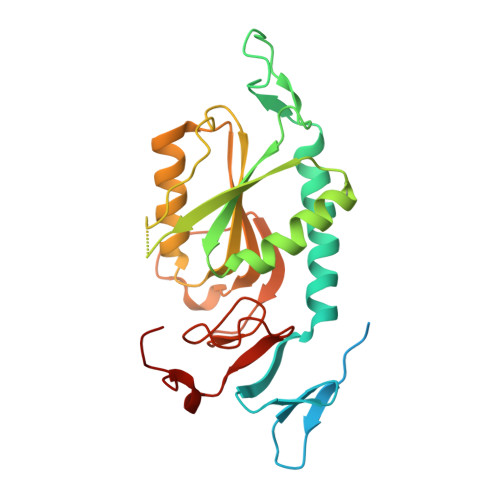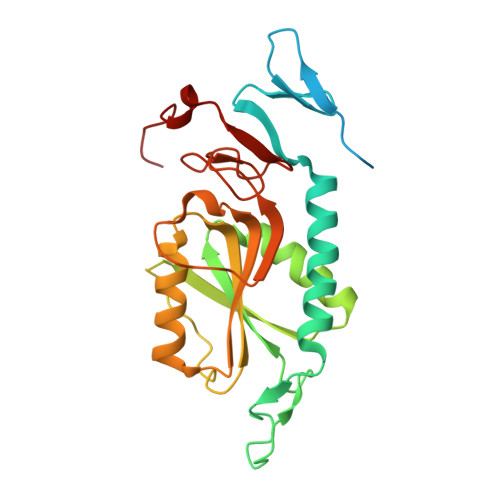Evaluation of the Trypanosoma brucei 6-oxopurine salvage pathway as a potential target for drug discovery.
Dolezelova, E., Teran, D., Gahura, O., Kotrbova, Z., Prochazkova, M., Keough, D., Spacek, P., Hockova, D., Guddat, L., Zikova, A.(2018) PLoS Negl Trop Dis 12: e0006301-e0006301
- PubMed: 29481567
- DOI: https://doi.org/10.1371/journal.pntd.0006301
- Primary Citation of Related Structures:
6APS, 6APT, 6APU, 6APV, 6AQO, 6AR9 - PubMed Abstract:
Due to toxicity and compliance issues and the emergence of resistance to current medications new drugs for the treatment of Human African Trypanosomiasis are needed. A potential approach to developing novel anti-trypanosomal drugs is by inhibition of the 6-oxopurine salvage pathways which synthesise the nucleoside monophosphates required for DNA/RNA production. This is in view of the fact that trypanosomes lack the machinery for de novo synthesis of the purine ring. To provide validation for this approach as a drug target, we have RNAi silenced the three 6-oxopurine phosphoribosyltransferase (PRTase) isoforms in the infectious stage of Trypanosoma brucei demonstrating that the combined activity of these enzymes is critical for the parasites' viability. Furthermore, we have determined crystal structures of two of these isoforms in complex with several acyclic nucleoside phosphonates (ANPs), a class of compound previously shown to inhibit 6-oxopurine PRTases from several species including Plasmodium falciparum. The most potent of these compounds have Ki values as low as 60 nM, and IC50 values in cell based assays as low as 4 μM. This data provides a solid platform for further investigations into the use of this pathway as a target for anti-trypanosomal drug discovery.
Organizational Affiliation:
Institute of Parasitology, Biology Centre, Czech Academy of Sciences, Branišovská, České Budějovice, Czech Republic.


















